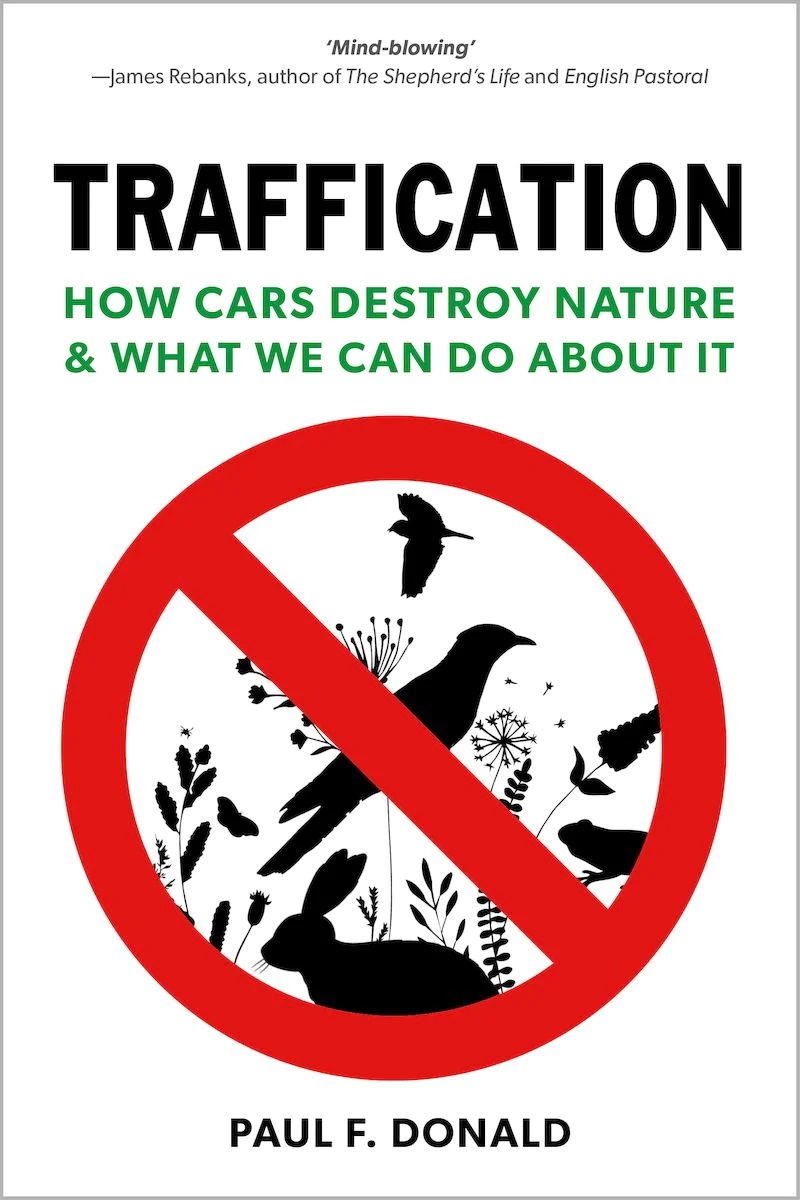Traffication: How Cars Destroy Nature and What We Can Do About It

- Traffication: How Cars Destroy Nature and What We Can Do About It by Paul F Donald.
- Pelagic Publishing, 2023. 288 pages; photos, graphs and illustrations.
- ISBN: 9781784274443. Hbk, £20.
One of the few good things to come out of lockdown was sitting in my London garden first thing in the morning, with a cup of tea and just listening. The lack of traffic meant I could hear birds singing; I could even smell my neighbour's honeysuckle.
Many people commented on how much nicer life was without the ever-present hum of cars. But once the regulations were lifted things just seemed to reset, and all that traffic is back on the roads.
One outcome of that unplanned experiment in road traffic reduction was a huge reset in animal behaviour. Birds sang more prominently, roadkill was dramatically reduced and species that generally avoid roads were found in close proximity to them.
The relatively new science of road ecology analyses the effects that roads and motor vehicles have on our wildlife. This new book from environmental scientist Paul F Donald summarises the findings, and it doesn't look good. He terms this effect 'traffication' and concludes that it's at least as damaging to the environment as climate change, agricultural intensification and habitat loss.
The book provides a fascinating, eye-opening and easy-to-read survey of the available research – much of it from The Netherlands, Germany and the US. UK-based studies are few and far between, and UK conservationists largely ignore the dangers of traffication. This is a problem because, according to Donald, the UK is one of the most heavily trafficated countries in Europe.
The dangers of traffication are many. Roadkill might be the most visible, but in many ways it's the least damaging. Air pollution, plastics and chemicals, the fragmentation of habitats and species populations, loss of diversity, noise and light pollution are all much more problematic. What's truly frightening – something that's beyond the scope of this book – is how these things are affecting humanity as well as wildlife.
The book also looks at some solutions to the damage that traffication is doing to our wildlife. Donald discusses mitigations that can be put in place, and in some cases already have been. He is, he says, hopeful.
If motor vehicles are so problematic, the solution is simple. It doesn't involve expensive reintroduction programmes or complicated research along thousands of kilometres of migration routes. It doesn't involve wholesale changes to agriculture.
It just means fewer cars on the roads. In fact, according to Donald, just reducing our speed will massively lessen many of the dangers of traffication. And that's something we can all get on board with.

